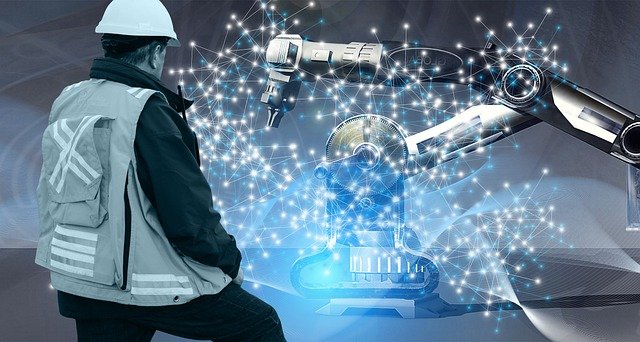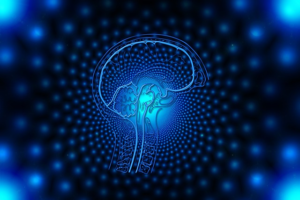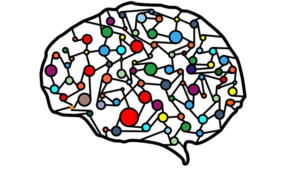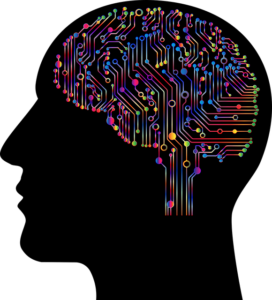Artificial intelligence has probably already made decisions about you. Here’s why that matters – ABC News
Artificial intelligence has probably already made decisions about your life.
It might have decided whether your insurance claim was accepted or rejected as fraudulent.
It may have assessed your credit score, predicting if you were worthy of a loan or deemed too high risk.
It could even have watched you drive, detectin…….

Artificial intelligence has probably already made decisions about your life.
It might have decided whether your insurance claim was accepted or rejected as fraudulent.
It may have assessed your credit score, predicting if you were worthy of a loan or deemed too high risk.
It could even have watched you drive, detecting if you are flouting the road rules and should be fined.
And if AI hasn’t already made a decision that affects your life, it almost certainly will, whether that be shaping what you see on social media or keeping tabs on you while you work from home with tracking software or some other application.
So what do you need to know about automated decision-making and why should you care about it?
What exactly is AI again?
AI is a type of computer program that uses complex code and powerful processors to sift through massive amounts of data.
The software analyses all that information to make decisions and take actions.
There is not just one AI, but countless different systems being created for different purposes and applications.
Most people often only pay attention to exciting new uses of AI, like the “neural network” that creates bizarre artworks prompted by key words.
AI generated this image from the text prompt ‘Bondi love story’.(ABC)
Or to scary warnings of an “AI apocalypse” where scenarios from movies like The Terminator or War Games seem to be becoming a reality.
But there are many everyday instances of AI that also deserve our attention.
What are some examples?
When Spotify recommends a song, it’s analysing the music you’ve listened to and comparing them to tracks that other people like. The AI then makes decisions about what other songs you might also enjoy.
By feeding more data into an AI, the system is trained to see more connections and correlations between different pieces of information.
Spotify’s AI analyses our listening habits to make song recommendations.(Pexels: Ivan Samkov)
This kind of automated analysis can find things humans might miss. It can also process data at speeds and scales that are humanly impossible.
This is why the technology industry often gathers as much data as possible from any sources available. The idea is that more data will result in more advanced and more accurate forms of AI.
But that data has to come from somewhere.
Behind the AI in smart home devices like Alexa or semi-autonomous cars like Tesla is an army of often low paid workers who clean and label data so it can be understood by machines — whether it’s images of street signs, recordings of speech or videos of colonoscopies.
Earlier this year it was reported that large numbers of refugees in Africa and the Middle East were doing this microwork for technology companies. Their wages are often miniscule and come with no security or rights. This kind of work is also being outsourced to prisoners in Finland.
Is AI better at making decisions than humans?
There’s an old saying in computer science: garbage in, garbage out.
AI is only as good as the data used to train it. If trained on incorrect, biased or poor-quality data, its decisions and actions will also be incorrect, biased or poor.
Algorithms might ‘screw’ you
Algorithms that make decisions without human input will “screw [some] people by default”, a visiting legal expert warns.
Read more
When using AI tech in hiring decisions, for instance, there’s evidence they’re choosing men over better-qualified women. Why? Because the data used to train these systems are embedded with gender bias, which AI then reinforces.
There’s no shortage of similar examples. Different AI systems have rejected black loan applicants at much higher rates than white applicants and decided black hospital patients need fewer health care resources than white patients.
But algorithms are just maths, right? Maths can’t be bad
AI decisions tend to be viewed as the result of a neutral, objective technology.
Yet, from start to finish, AI is the product of human choices — prone to human errors, shaped by human biases and directed by human values.
Download This Show
Your weekly guide to the world of media, culture, and technology. From social media to gadgets, streaming services to privacy issues. Each week Marc Fennell and a panel of guests take a fun deep dive into how technology is reshaping our lives.
Read more
And AI is already directly affecting what sociologists call our “life chances” — our access to services, our opportunities for advancement and our place in society.
The ways we often talk about AI as a system that exists outside of people “makes us think of something mystical and overseeing us all,” Ellen Broad, senior fellow in the 3A Institute at ANU, tells Download This Show.
The risk is that we assume these technologies are “much more intelligent than they actually are simply by virtue of calling it AI,” Broad says.
“So it gives these systems a sense of intelligence and superiority that sometimes they don’t really deserve.”
What are the solutions?
There is growing recognition among the giants of Silicon Valley that building and using AI comes with many thorny ethical and social issues.
Tech companies like Google have established principles for “responsible AI” that are meant to guide their practices. For them, responsible AI means considering issues related to fairness, privacy and security when designing these technologies.
But others such as Facebook tend to argue that many of AI’s problems can be solved by using more AI.
So what’s the issue?
All AI is designed to accomplish specific tasks or solve specific problems.
Critics, both outside and inside the industry, say these technologies are largely created and controlled by a small group of people — mostly white, mostly male, mostly affluent.
‘I’m always worried.’ How online platforms can improve women’s safety
Personal abuse and degrading content in Kate’s news feed make online spaces feel unsafe to her. So what are platforms doing about it?
Read more
They get to decide how AI is trained and why it’s used. They get to define the problems. The rest of us, largely, must live with those decisions, both human and artificial.
But there is increasing public debate about the transparency and accountability of these automated processes that are making decisions about our lives.
As we speed into a future of AI, the crucial question that many are trying to answer is what kind of technologies are compatible with a democratic society?
And that’s a question more of us need to consider, since the answer will have a profound impact on everybody.
Dr Jathan Sadowski is a research fellow at the Emerging Technologies Research Lab and Centre of Excellence for Automated Decision-Making and Society at Monash University. He is also an ABC Top 5 Humanities scholar for 2021.
RN in your inbox
Get more stories that go beyond the news cycle with our weekly newsletter.
Source: https://www.abc.net.au/news/2021-11-30/why-you-should-care-about-artificial-intelligence/100591684







